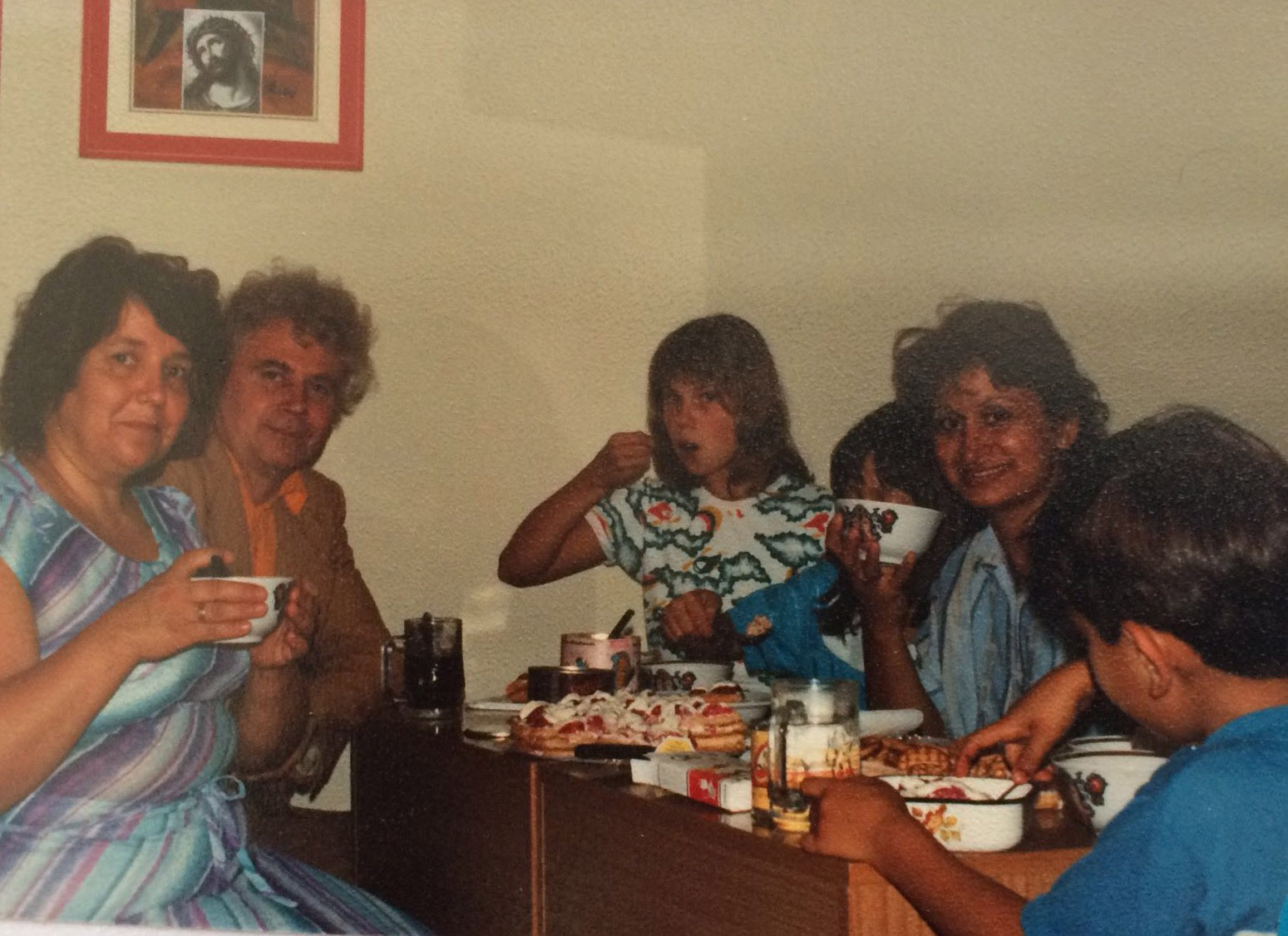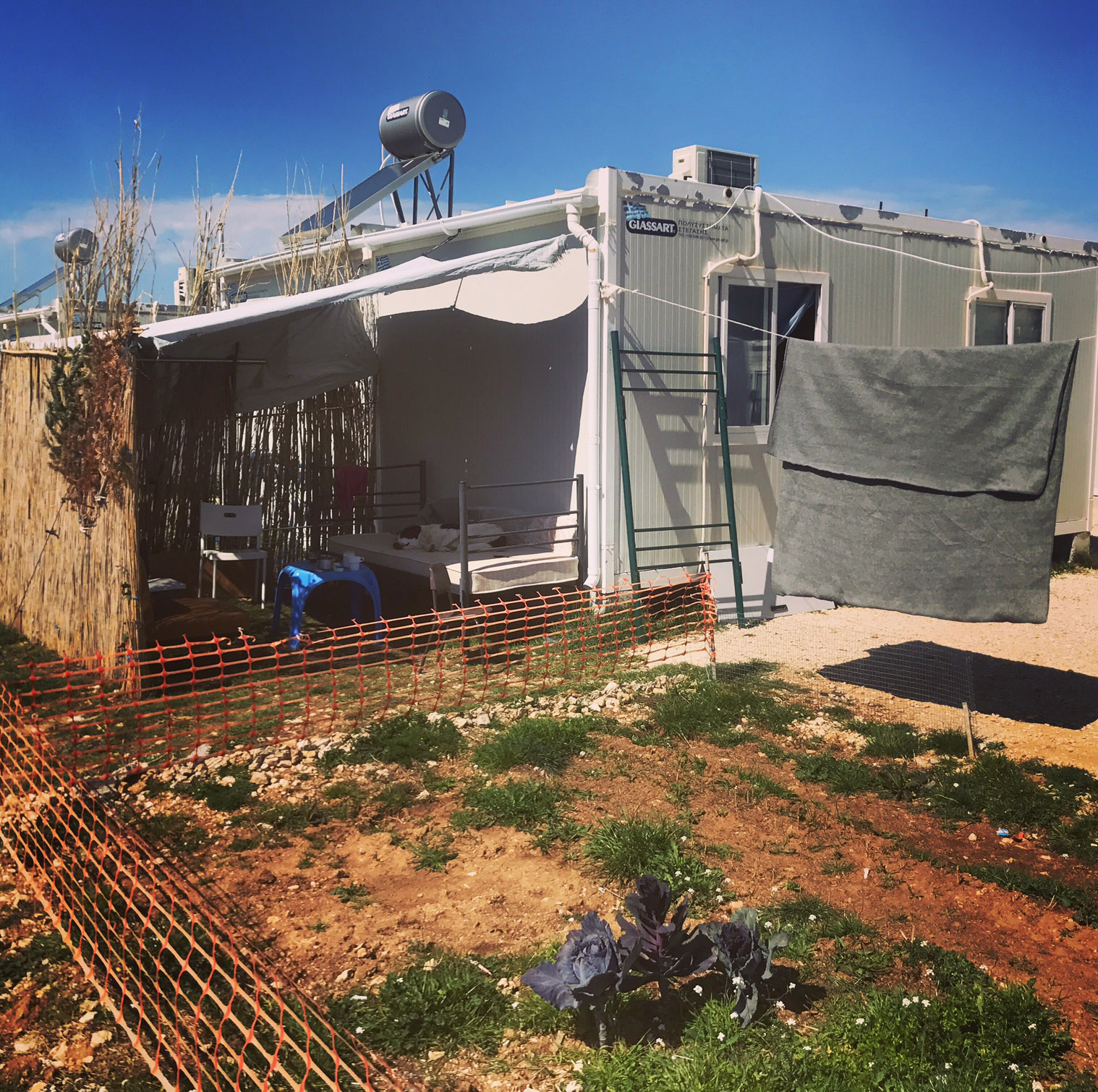I spent sixteen months of my childhood in limbo, first as an undocumented Iranian immigrant in Dubai and then in a refugee camp outside Rome, in the carcass of an old hotel that the government used to house asylum seekers. Conjuring up memories of those days, I often surprise myself: I remember a lot of good things. The place was full of love—mothers, grandmothers, cups of tea. My mother erased used workbooks all day so I wouldn’t fall behind in school. Old women told stories. I kicked a soccer ball with an Iranian soldier who had a milky white chemical burn, like a splash, on his face. Though we agonized over our futures, waiting by the mail cubbies every morning for letters from free countries, we managed to create a lot of joy and dignity for each other. We refused to sit around and wait.

In March 2019, I traveled to a Greek refugee camp in Katsikas near Ioannina. The first time I visited, for The Guardian in February 2018, the refugees were anxious but relieved. The camp was newly reopened and almost everyone had been rescued from Moria (the hellish arrival point on Lesbos island for those who came by sea). Mothers danced at a birthday party. They made noodles on a bed frame. They borrowed sugar and made cake. They pried fun and cheer out of the tight grip of purgatory. I made a video of an Afghan mother dancing. Back in London, I played it to myself in secret.
I returned to Katsikas the day before the 2019 Persian New Year (Norooz), naively hoping that the displaced families I had met last year would be gone, and that I could celebrate spring with new arrivals from Iran and Afghanistan, families who still had reason to hope–maybe we could be a comfort to each other. Instead, I found many of the same people still living on that dismal field of shipping crate homes, still stuck in limbo, more than a year later. These stragglers—the ones who hadn’t been offered asylum and hadn’t yet resorted to another round of smugglers to take them deeper into Europe—were transformed. Despair was everywhere. No one took care of the camp anymore. Children idled, without school, without books. Maybe a year is too much time to wait in a shipping crate. Where did their resilience go?
I spent much of last year traveling to research my book, The Ungrateful Refugee, to collect stories that go beyond the brutal escape dramas of last decade’s migration crisis. I was searching for the small disgraces, the private wounds, the crises of identity and faith that go unseen—but refugees don’t believe that the world cares about their deepest fractures. After all, there is torture and death back home; there are children dying in the water. How can anyone complain of the soul’s dark nights, of the demons approaching?
In Holland, I met an Iranian volunteer called Ahmed Pouri—I call him The Refugee Whisperer. People passed his phone number around at camps, in prisons, in homes of settled countrymen. From lawyer to client, refugee to refugee, everyone knew his name. And his job? Not to translate or to offer legal advice, but to help asylum seekers translate themselves, their culture, the tangible life they left behind: because a Farsi or Arab or Chinese story told in English is still incomprehensible to the stony Western listener. To be seen, refugees must learn to tell their stories the Dutch way, or the British way, or the American way.

The refugees at Katsikas, too, have been speaking to helpers like The Refugee Whisperer. They know now that their joy can betray them, because today’s Western listener doesn’t like complexity. Comfortable Americans and Europeans sit at home and watch the news. They see a refugee with an old iPhone and say, “Well, look at that, a fancy phone!” They catch a refugee laughing at a joke, and think, “They’re making it all up!” And yet they fill their own lives with small joys, even in hard times.
So, where is the noodle-making, and the dancing, and the faith that I saw last year at Katsikas? Where did it go? Some of it was worn away and the rest moved underground—the refugees realized that judging Western eyes are fixed on them, demanding a simple narrative. In today’s asylum process, nuance and complexity will get you sent back into the warzone. If there was a Norooz celebration in one of their shipping crates, it could no longer include me, the outsider, the Western storyteller. They had decided that their stories must be curated, that the only thing they should display to the hostile world was their grief.
But time works against the petitioner. The longer you wait, the more frantic you become. Melodrama sets in, and you stop being desirable—you will be sent away. “If I ask you to wait in this chair for six hours,” Ahmed Pouri often says, “what will you do? You’ll find a book to read, a job to do. But if I ask you to wait five minutes, you’ll do nothing. You’ll stare at walls. Then if I come back and ask for five more minutes, you’ll keep waiting. In this way, I can make you waste those six hours…. and I can drive you to madness.”
To wait is to submit, to leak power, skill, and dignity.

Since my last visit, the residents of Katsikas have more than doubled. A second section of much older, filthier shipping crates has been added to house new arrivals. Now ten people are crammed into a space the size of a New York studio. Families of four are jammed into what used to be their children’s room to make space for another family. The authorities force compliance using threats of reduced food subsidies. On the camp, there is no security. There are fights and hostile locals. Left to protect themselves, the migrants are angry and afraid.
The children of Katsikas, too, are changing. Now they posture for visitors, hoping that one of them might whisk their family away. They tell rehearsed stories that have, with many retellings, grown stale, drained of their most heartbreaking elements.
There is no abjection worse than waiting to be granted life; it is a boot on the neck, a daily humiliation. How long can they remain themselves?
On my first day back in Katsikas, as I walked the rows of shipping crates, I met a young man. I greeted him in Farsi, just in case he was from Iran. He stopped. “Who are you, Miss?” he asked “Doctor? United Nations?” I told him I’m a writer and a former refugee and that I’m here to celebrate the New Year with him. He laughed. “I’m not staying,” he said. “Today, I’m going to find my own way out.” I asked him what he meant. He said, “I’m running to Italy. If you don’t see me here the day after Norooz, you can celebrate that I made it out.” Having chosen the fugitive life over waiting, he walked away.
More Must-Reads from TIME
- Cybersecurity Experts Are Sounding the Alarm on DOGE
- Meet the 2025 Women of the Year
- The Harsh Truth About Disability Inclusion
- Why Do More Young Adults Have Cancer?
- Colman Domingo Leads With Radical Love
- How to Get Better at Doing Things Alone
- Michelle Zauner Stares Down the Darkness
Contact us at letters@time.com